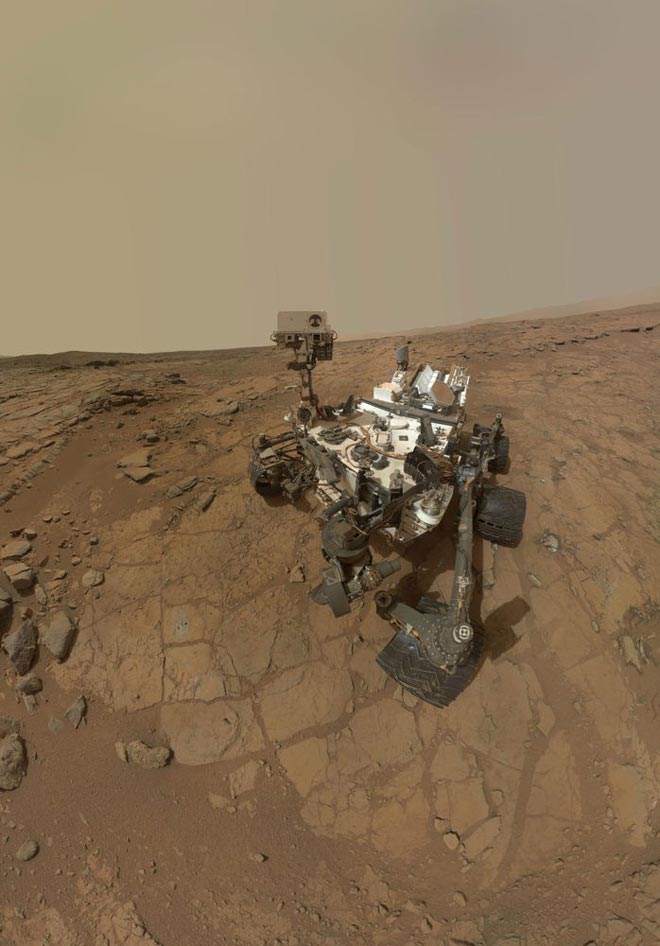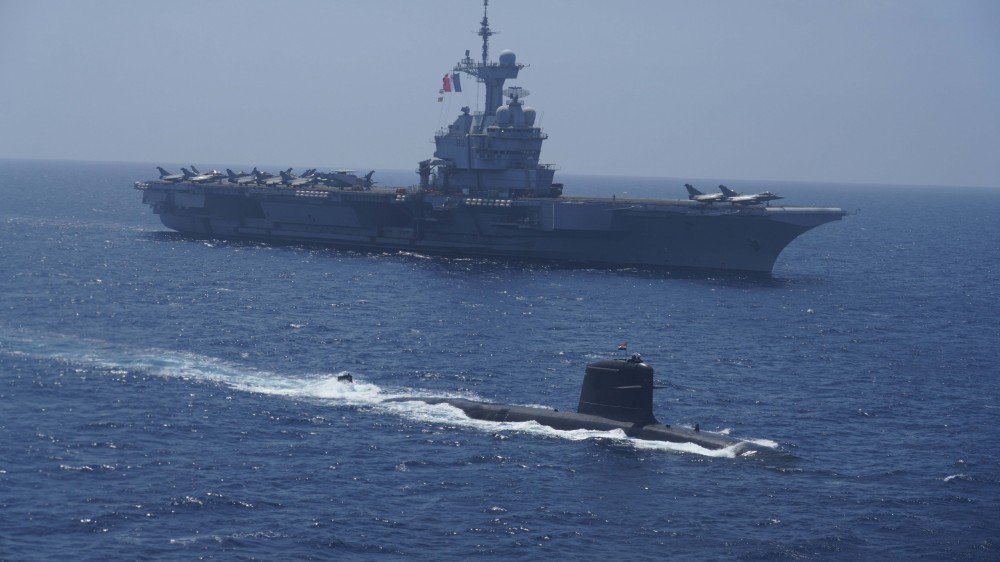
Evidence collected by the Mars Curiosity rover shows that salt water may form in the Martian soil on cold nights. Photo: NASA/JPL-Caltech/MSSS.
PARIS (AFP): Research from NASA's Mars rover Curiosity has strengthened hopes that liquid water may exist near the surface of Mars, astrophysicists said on Monday.
The clue comes from the presence in the soil of calcium perchlorate, they said.
This is a type of salt that is highly absorbent and lowers the freezing point of water so that it remains liquid.
The compound is a signature of "very salty salt water -- a brine," according to the study, appearing in the scientific journal Nature.
"When night falls, some of the water vapour in the atmosphere condenses on the planet surface as frost," said co-author Morten Bo Madsen of the University of Copenhagen's Niels Bohr Institute.
"But calcium perchlorate is very absorbent and it forms a brine with water, so the freezing point is lowered and the frost can turn into a liquid.
"The soil is porous, so what we are seeing is that the water seeps down through the soil."
Curiosity also sent back close-up pictures, as it crawled towards a feature called Mount Sharp, that point to sedimentary deposits that were left in the distant past by flowing water.
If so, the crater at the foot of Mount Sharp may have been a large lake.
Last month, NASA said that almost half of Mars' northern hemisphere had once been an ocean, reaching depths greater than 1.6 kilometres.
But 87 per cent of the precious substance was lost to space.
One theory is that Mars lost its magnetic field, which had protected its surface from bombardment by high-energy particles blasted out from the Sun.
Without the shield, solar protons simply destroyed the atmosphere little by little, according to this idea.
Even if water does exist near the Martian surface, the conditions are so hostile that life there would be impossible, the researchers said.
"It is too dry, too cold and the cosmic radiation is so powerful that it penetrates at least one metre into the surface and kills all life -- at least as we know it on Earth," the university said.
 Previous Article
Previous Article Next Article
Next Article












The Indian Air Force, in its flight trials evaluation report submitted before the Defence Ministry l..
view articleAn insight into the Medium Multi-Role Combat Aircraft competition...
view articleSky enthusiasts can now spot the International Space Station (ISS) commanded by Indian-American astr..
view article